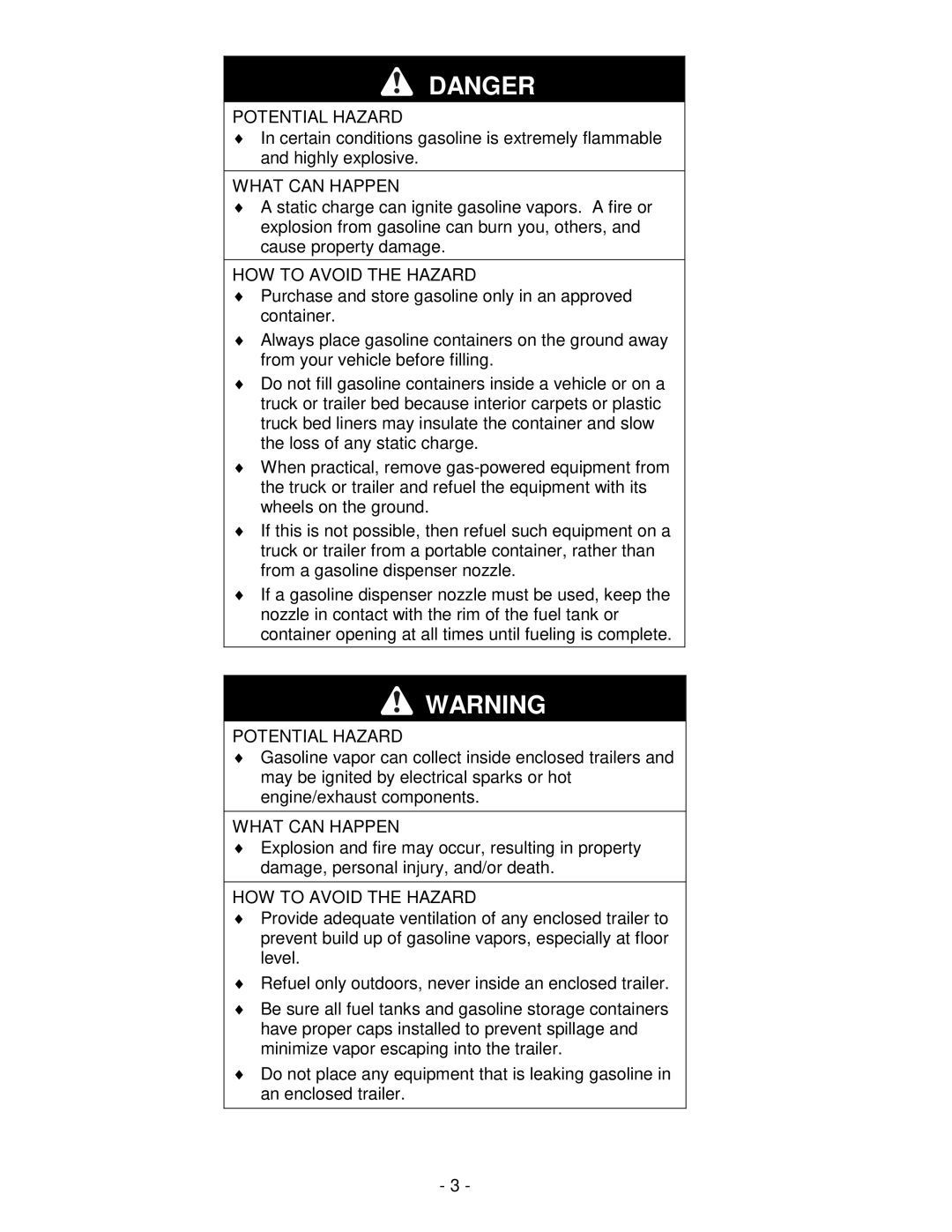
DANGER
POTENTIAL HAZARD
♦In certain conditions gasoline is extremely flammable and highly explosive.
WHAT CAN HAPPEN
♦A static charge can ignite gasoline vapors. A fire or explosion from gasoline can burn you, others, and cause property damage.
HOW TO AVOID THE HAZARD
♦Purchase and store gasoline only in an approved container.
♦Always place gasoline containers on the ground away from your vehicle before filling.
♦Do not fill gasoline containers inside a vehicle or on a truck or trailer bed because interior carpets or plastic truck bed liners may insulate the container and slow the loss of any static charge.
♦When practical, remove
♦If this is not possible, then refuel such equipment on a truck or trailer from a portable container, rather than from a gasoline dispenser nozzle.
♦If a gasoline dispenser nozzle must be used, keep the nozzle in contact with the rim of the fuel tank or container opening at all times until fueling is complete.
WARNING
POTENTIAL HAZARD
♦Gasoline vapor can collect inside enclosed trailers and may be ignited by electrical sparks or hot engine/exhaust components.
WHAT CAN HAPPEN
♦Explosion and fire may occur, resulting in property damage, personal injury, and/or death.
HOW TO AVOID THE HAZARD
♦Provide adequate ventilation of any enclosed trailer to prevent build up of gasoline vapors, especially at floor level.
♦Refuel only outdoors, never inside an enclosed trailer.
♦Be sure all fuel tanks and gasoline storage containers have proper caps installed to prevent spillage and minimize vapor escaping into the trailer.
♦Do not place any equipment that is leaking gasoline in an enclosed trailer.
-3 -
